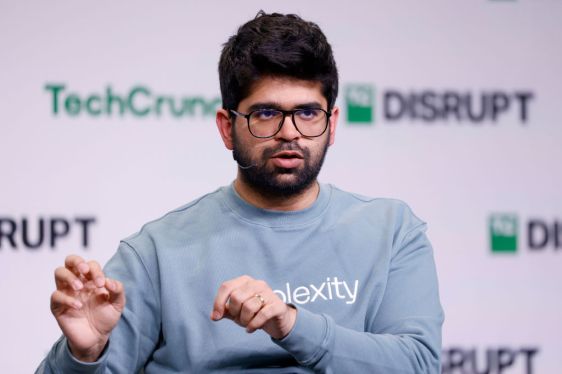
Perplexity Introduces Ads on Its Platform
In a significant move, Perplexity, an AI-powered search engine, has announced that it will begin experimenting with ads on its platform starting this week. The company plans to display ads in the United States, initially, and they will be formatted as "sponsored follow-up questions." For instance, an ad might read, "How can I use LinkedIn to enhance my job search?" These ads will be positioned to the side of answers and labeled as "sponsored."
Participating Brands and Agencies
Perplexity has partnered with several brands and agencies for its ad program, including Indeed, Whole Foods, Universal McCann, and PMG. This partnership is a significant development for Perplexity, which aims to generate revenue through advertising.
Revenue-Sharing Program
According to Perplexity, its ad programs are designed to help the company generate revenue to share with its publisher partners. In a blog post, Perplexity wrote, "Ad programs like this help us generate revenue to share with our publisher partners." The company emphasized that subscriptions alone do not generate enough revenue to create a sustainable revenue-sharing program.
Experimental Ad Formats
Perplexity has introduced several experimental ad formats, including "sponsored questions." These ads will be integrated into the search results page, allowing users to interact with them seamlessly. The company claims that answers to these sponsored questions will still be generated by its AI and not written or edited by the brands sponsoring the questions.
Protecting User Experience
Perplexity has assured users that its ad formats are designed to protect the utility, accuracy, and objectivity of answers. The company stated, "We intentionally chose these formats because it integrates advertising in a way that still protects the utility, accuracy, and objectivity of answers." This emphasis on user experience is crucial for Perplexity, as it seeks to maintain its reputation as a trusted search engine.
Comparison with OpenAI and Google
Perplexity’s decision to introduce ads on its platform contrasts with OpenAI’s decision not to launch its AI-powered search tool, ChatGPT Search, with ads. Rival Google has also piloted ads in its AI search experience, AI Overviews. However, Perplexity is marketing its ad products as a premium alternative to Google’s, emphasizing its platform’s ability to reach educated, high-income consumers.
Challenges and Concerns
While Perplexity’s ad program may generate revenue for the company, it also poses several challenges and concerns. For instance, some analysts have expressed doubts about the scale, reach, and targeting capabilities of ads on Perplexity. Additionally, Microsoft briefly explored showing ads in its chatbot responses on Bing but quietly withdrew them after a few weeks.
Plagiarism Allegations
Perplexity has faced allegations of plagiarism, which could deter advertisers from using its platform. News Corp’s Dow Jones and the NY Post have sued Perplexity over what they describe as a "content kleptocracy." Many other news sites have shown evidence that Perplexity closely replicates their content.
Expansion of Revenue-Sharing Program
Perplexity claims to have changed how its platform cites sources, and it continues to expand its revenue-sharing program for publishers. However, the company has argued that publishers wished its technology "didn’t exist" and they would prefer that "publicly reported facts are owned by corporations."
Pressure to Monetize
Perplexity is reportedly in the final stages of raising $500 million in funding at a $9 billion valuation. The company’s revenue comes primarily from its premium subscription service, Perplexity Plus. However, with increasing competition in the search engine market, Perplexity faces pressure to monetize its platform effectively.
Conclusion
Perplexity’s decision to experiment with ads on its platform is a significant development for the AI-powered search engine. While it may generate revenue for the company, it also poses several challenges and concerns. As Perplexity continues to navigate the competitive landscape of the search engine market, it will be essential for the company to balance user experience with monetization strategies.


